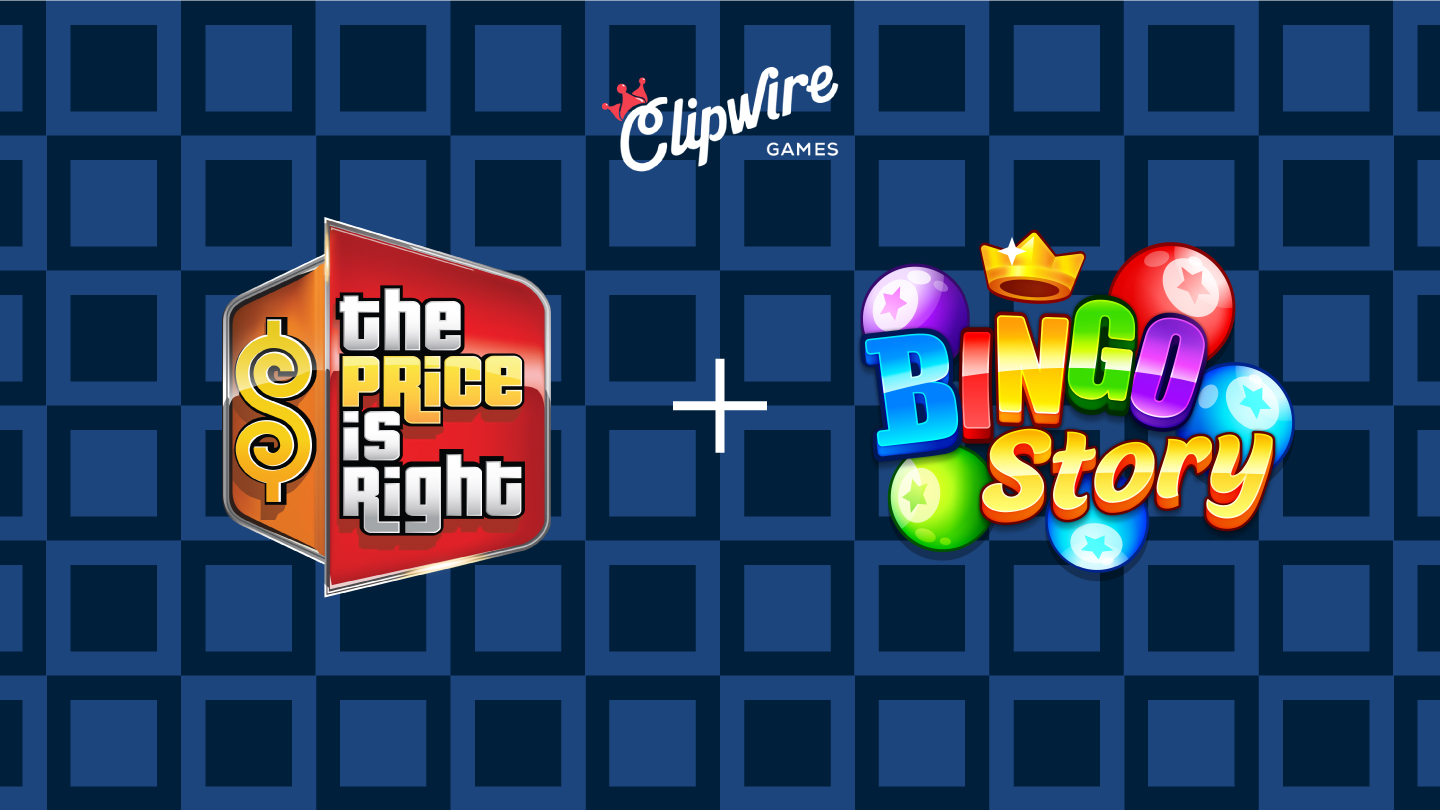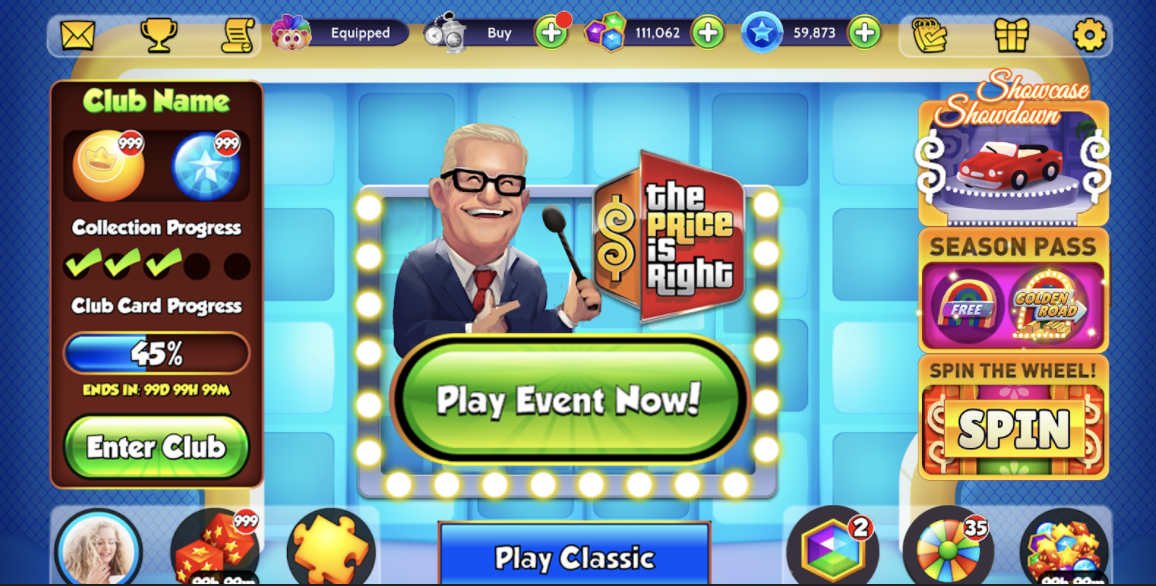Gaming, Industry News & Events, User Acquisition
Clipwire’s Partnership With The Price Is Right: What to Understand About Licensing an IP for Your Game
Feb 12, 2021

Gaming, Industry News & Events, User Acquisition

These days, it’s all about reaching an audience, engagement, and standing out in a competitive market. You can improve in these areas with an optimal game monetization strategy, a technically sound game, and the right tools to engage and retain your players.
So when Clipwire Games decided to team up with Fremantle’s classic show The Price Is Right to bring the beloved franchise to their hit game, Bingo Story, the possibilities to reach a wider audience expanded exponentially.
We spoke with Mary Kaye Fraser, Head of Studio at Clipwire, and Jaime Pearse, who led the design and integration of the IP, or intellectual property license.

The Price Is Right is in its 50th year and with Bingo Story now one of the top-grossing games in the U.S. and Canadian app stores, Clipwire saw their opportunity.
Jaime explained, “The IP has a lot of variety and therefore, many opportunities to bring these into the mobile space in a way that hasn’t been done before.”
If you’re thinking about partnering up with a specific brand for your game, Clipwire’s partnership with The Price Is Right serves as a solid example of what you should know before jumping in.
Think of an IP collaboration as more of an accelerator to make your game more successful and engaging, rather than the answer that will make your game a top-grossing hit. Before deciding if licensing an IP is worth it for your mobile game, think through the following:
What the partnership will allow you to do. If you have a specific demographic that you want to chase and the IP will bring you that, then licensing makes sense.
Make sure your title is ready. This means:
Jaime explained, “We have a solid user base and wanted to refine and fine-tune our monetization and retention levers while offering a fresh experience to our loyal customers.”
You might assume that licensing an IP will help with app discovery and user acquisition (UA) costs, but the reality is that neither is guaranteed.
UA costs can potentially increase with a high-value IP due to the more competitive space. Having a licensed IP might increase click-through rates on your ads from fans, but you still have to pay to reach people.
Mary Kaye noted, “Don’t expect IP to generate organic downloads. This was once probably viable, but in today’s space the main value is in lower paid UA and engagement of your existing fan base.”
What licensing an IP does help with is bolstering the LTV of a player and reduces the churn rate of your game. Low-cost UA is considered ineffective because it will negatively affect LTV if you acquire users for a low price, but they don’t convert.
When searching for an IP, think about your target demographic, and what will and won’t work with your game. What kind of content will the IP bring to help bolster or enhance your game’s experience and engagement? In thinking through the partnership Jaime said, “We felt there was a good crossover between Bingo Story and The Price Is Right demographics.”
Mary Kaye said, “Having alignment and synergy between the IP, demographic, and the core mechanic is vital. Making a game that has mechanics targeted at a mid-core audience and skinning it with a children’s IP wouldn’t work.”
Bottom line—if your existing fans won’t enjoy the license, it probably won’t do well.
Jaime strongly believes in becoming an expert in the IP you’d like to license, saying, “This allows you to capture the magic and bring the IP into your title in a meaningful way, where it’s not just a reskin. This is what makes the branded experience more immersive.”
Think through your game’s mechanic—whether it’s a match-three, strategy, shooter, endless runner, simulation, or something else.
With that in mind, ask the following questions:
Your pitch: As with any good partnership, don’t forget about your pitch—what’s in it for the IP holder? Be prepared to explain how your mobile game can help increase their brand recognition or other meaningful KPIs.
Marketing costs: Another big factor to consider is how you’ll split the marketing costs. A recoup clause lets you split and get reimbursed for marketing expenses before revenues are split.
Creatives: On the creative side, you’ll need to think through art guidelines, rather than having the license holder approve your art each time. Once you agree on content outlines, you’ll be able to iterate much faster to launch earlier instead of burning through resources while waiting for approvals.
Find the right IP license, understand how to approach them, and think through how the IP will integrate into your title. In your approach, make the process as easy as possible for them. Do the heavy lifting and provide transparency around your:
Once you set those expectations, both parties can benefit and it can be an exciting time.
Mary Kaye expressed her enthusiasm for this new venture, saying, “Fremantle has been an incredible partner for us and has made it so easy to build something delightful with their brand.”
Jaime remarked, “This is a great proof of concept for Clipwire Games as a whole as this partnership flexes our creative muscles and we can see how an IP impacts our bottom line from a data perspective. It also gives us a general understanding of how to work with licensors.”
She added, “This deal feels like the next phase in Clipwire’s phenomenal growth and bodes well for our future adventure as a team.”
The Price Is Right and Bingo Story launched this week—download it now!